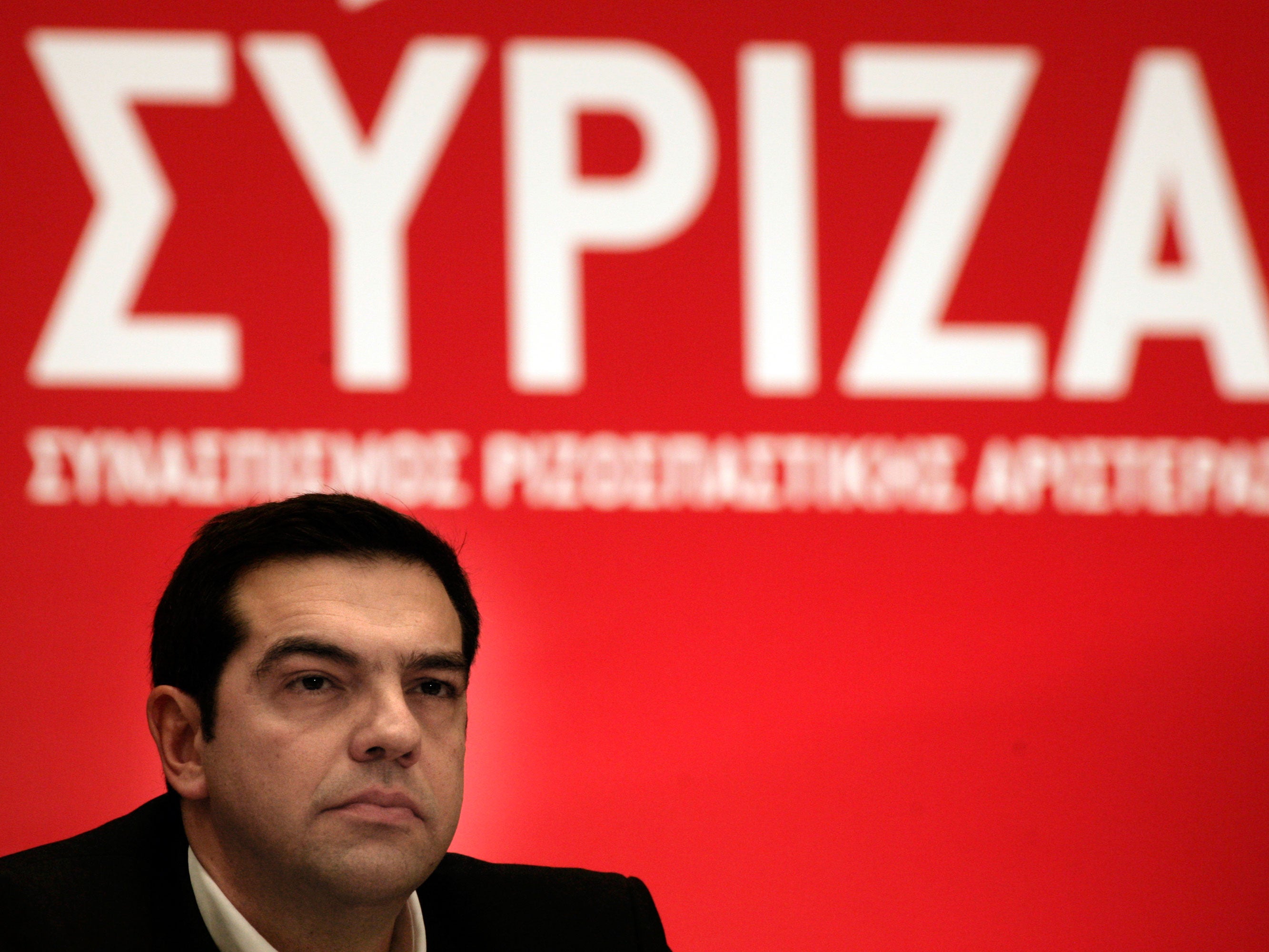Alexis Tsipras resigns: Greek PM steps down and thrusts nation into yet more political instability
Mr Tsipras said the mandate his Syriza party received in January has been 'exhausted' after tax hikes and other reforms were imposed to secure third EU bailout

Your support helps us to tell the story
From reproductive rights to climate change to Big Tech, The Independent is on the ground when the story is developing. Whether it's investigating the financials of Elon Musk's pro-Trump PAC or producing our latest documentary, 'The A Word', which shines a light on the American women fighting for reproductive rights, we know how important it is to parse out the facts from the messaging.
At such a critical moment in US history, we need reporters on the ground. Your donation allows us to keep sending journalists to speak to both sides of the story.
The Independent is trusted by Americans across the entire political spectrum. And unlike many other quality news outlets, we choose not to lock Americans out of our reporting and analysis with paywalls. We believe quality journalism should be available to everyone, paid for by those who can afford it.
Your support makes all the difference.Greek Prime Minister Alexis Tsipras has resigned, paving the way for a new general election and thrusting the beleaguered country into another period of political instability.
In an address to the nation, Mr Tsipras said he felt he had a “political and ethical responsibility” to allow the electorate to judge his administration’s work since being elected just seven month ago, after it failed to live up to his Syriza party’s promise to put an end to austerity.
Instead of renegotiating the harsh economic measures imposed by Greece’s international creditors, Mr Tsipras ended up agreeing to more tax hikes, the privatisation of much of the public sector and other reforms in exchange for a third massive bailout loan of €86bn (£62bn) – a humiliating climbdown that prompted a rebellion from left-wingers within Syriza.
Following the announcement of the general election, there were unconfirmed reports that the party’s left faction could leave and stand on an anti-bailout platform.
The Prime Minister said in a televised address: “The public mandate we got on 25 January exhausted its limits and now the sovereign people must yet again have its say.
“I want to be honest with you. We did not achieve the agreement we expected before the January elections. Your vote will decide on whether we represented the country with the required decisiveness and courage during the tough negotiations with our creditors; your vote will decide on whether this deal provides the conditions to overcome today’s impasse, recover the economy and to get rid of the bailouts and the harshness they entail.”

Speaking to President Prokopis Pavlopoulos as he formally handed in his resignation, Mr Tsipras said his government had “fully restored the country’s financial stability” by agreeing the new bailout. “Now is the time to find the way to restore its political stability. Like our constitution stipulates, the way to do so is by resorting to the public’s verdict,” he said.
Experts said Mr Tsipras was heading to the polls before the brunt of the new austerity measures are felt in Greece and while he still remains popular. It also leaves the rebel MPs with little time to prepare for the elections, which are likely to take place on 20 September. Last week, 13 MPs announced the formation of an anti-bailout movement.
Senior Syriza officials insisted that calling the election was more about coming clean to the Greek people. the parliament’s Deputy Speaker Yannis Balafas told The Independent: “We aren’t only headed to elections to deal with our internal party problems, it’s also to deal with the need for a fresh mandate and also discuss the debt relief.”
The Greek constitution stipulates that when a government resigns, the president should ask the second and third biggest parties – currently the centre-right New Democracy and the neo-Nazi Golden Dawn – to try to form a new administration.
The head of New Democracy, Vangelis Meimarakis, said he would try to form a coalition government, although observers thought it unlikely that he would be able to get a majority in the 300-seat parliament. If he fails, a caretaker government will be appointed to lead the country until the new elections. Syriza was said to be hopeful that the caretakers could be sworn in as early as Monday or Tuesday.
Greece has repaid €3.4bn to the European Central Bank (ECB) after it received €13bn of new loans – its first injection of cash since the country secured the €86bn bailout after fractious, summer-long negotiations with the rest of Europe. The finance ministry said the money will be put into a “special account” to repay debt, which in addition to the €3.4bn ECB loan included a €7.2bn bridge loan and debt obligations to the IMF. The remaining €1bn will probably be used to repay state arrears, it said.
The repayment to the ECB marked another step for Greece away from near financial collapse. The country could not have afforded the debt repayment without the rescue funds from 18 other European nations that share the euro currency. Greece faced a particularly heavy debt-repayment burden during the summer, but it has fewer large payments to come.
The European Commission said it “takes note” of the election announcement. “Broad support for [bailout deal] and sticking to commitments will be key for success,” Annika Breidthardt, a European Commission spokeswoman, said in a tweet.
And the Dutch Finance Minister, Jeroen Dijsselbloem, who led talks on the new bailout for the eurozone countries, said: “It is crucial that Greece maintains its commitments to the eurozone.
“I hope the elections will lead to even more support in the new Greek parliament.
“Hopefully these elections will take place relatively soon so Greece can take important next steps in October, as foreseen.”
Join our commenting forum
Join thought-provoking conversations, follow other Independent readers and see their replies
Comments